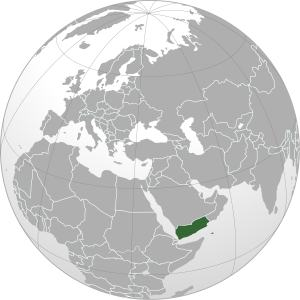By NewsDesk @bactiman63
Health officials in Yemen said this week that 4,770 cases of dengue fever had been detected in Taiz governorate in the southwestern part of the country since the beginning of the year through the end of July.

Taysir Al-Sami’i, Deputy Director of Information at the Ministry of Health’s office in Taiz said the neighborhoods of the city of Taiz, the capital of the governorate, recorded a greatest spread of the disease compared to other areas in the most populous governorate in Yemen.
He attributed the spread of dengue fever to several reasons, most notably the spread of mosquitoes that transmit the disease, and the health authorities’ preoccupation with confronting the COVID-19 epidemic, which led to the neglect of other infectious diseases.
Dengue is a viral infection transmitted by the bite of an infected mosquito. There are four closely related but antigenically different serotypes of the virus that can cause dengue (DEN1, DEN 2, DEN 3, DEN 4).
- Dengue Fever (DF) – marked by an onset of sudden high fever, severe headache, pain behind the eyes, and pain in muscles and joints. Some may also have a rash and varying degree of bleeding from various parts of the body (including nose, mouth and gums or skin bruising).Dengue has a wide spectrum of infection outcome (asymptomatic to symptomatic). Symptomatic illness can vary from dengue fever (DF) to the more serious dengue hemorrhagic fever (DHF).
- Dengue Hemorrhagic Fever (DHF) – is a more severe form, seen only in a small proportion of those infected. DHF is a stereotypic illness characterized by 3 phases; febrile phase with high continuous fever usually lasting for less than 7 days; critical phase (plasma leaking) lasting 1-2 days usually apparent when fever comes down, leading to shock if not detected and treated early; convalescence phase lasting 2-5 days with improvement of appetite, bradycardia (slow heart rate), convalescent rash (white patches in red background), often accompanied by generalized itching (more intense in palms and soles), and diuresis (increase urine output).
- Dengue Shock Syndrome (DSS) — Shock syndrome is a dangerous complication of dengue infection and is associated with high mortality. Severe dengue occurs as a result of secondary infection with a different virus serotype. Increased vascular permeability, together with myocardial dysfunction and dehydration, contribute to the development of shock, with resultant multiorgan failure.
Subscribe to Outbreak News TV on YouTube
Related:
- Anthrax case reported in North Kazakhstan
- Oxford study: Vaccines still effective against Delta variant
- COVID-19: Delta variant doubles risk of hospitalization compared to alpha variant, according to study
- New Zealand: Meningococcal disease death reported in University of Canterbury student
- Nigeria: H5N1 bird flu outbreak confirmed in Delta state,164,473 birds affected
- Fukuoka man dies from tick-borne infection, Severe fever with thrombocytopenia syndrome (SFTS)
- Japan reports nearly 23K COVID-19 cases Saturday, 2 men die after receiving Moderna shot
- Salmonella prompts recall of Mr. Porky brand Original Scratchings in Canada
- Vietnam tops 400K COVID-19 cases as 17,428 are reported Friday

